Stay in the know on all smart updates of your favorite topics.
Sustainable energy is the future. The city of Amsterdam has the ambition to provide every citizen with a solar panel in the next years. How do you contribute? Share your innovative initiatives on energy here.
Zero Emission Urban Logistics Challenge
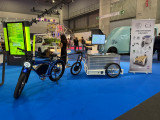
From January 1 2025, a zero-emission zone will be introduced in the centre of Amsterdam, with the aim of improving air quality and making the city healthier and more liveable. This policy helps achieve climate goals and supports the ambition of becoming climate neutral by 2050. It encourages zero-emission urban logistics, which contributes to reduced pollution, noise, and traffic congestion. And cleaner air also has positive effects on the health and well-being of residents. With this initiative, Amsterdam - and other Dutch cities implementing such zones this year - aim to set an example for other cities and stimulate innovation in sustainable mobility. The so-called "zero-emission zone" is therefore an essential measure in the transition to a cleaner and more sustainable city.
This transition will only succeed through collaboration. Therefore, considerable attention is being paid to the experiences and needs of small business owners in the city. Think of; market vendors, house painters, and local greengrocers. What kind of support do they need to transition to zero-emission vehicles, and how do entrepreneurs creatively adapt to the transition and new rules? Other cities and municipalities are closely observing and there is a strong need for knowledge sharing. It is important that the experiences and lessons learned from Amsterdam, as one of the pioneers, are well-documented and shared on a national and international scale.
Underground Challenge: Collaborating, Sharing Data, and Co-Planning
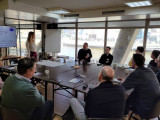
The underground is filled with infrastructure and other assets, including electricity cables, fibre optic cables, gas pipelines, heat networks, sewers, and more. Additionally, underground spaces host natural elements crucial for maintaining a healthy urban environment, such as soil essential for urban trees. Consequently, various stakeholders regularly need access to the underground, each with their own interests, creating significant pressure on the underground. Frequent excavation leads to disruptions, extensive damage, and trees that don’t age past 60 (which is very young for trees).
Improvements can be made by enhancing collaboration among stakeholders, sharing more data, and collectively planning underground activities. Understanding the interests of all involved parties is crucial to developing an action plan aimed at enhancing the quality and management of the underground.
Revolutionise Recycling, Redefine Wealth: Seize the Opportunity with ByeBye Bed Limited and Reborn Products!

Greetings Trailblazing Visionaries,
Get ready for a seismic shift in sustainability! We're ByeBye Bed Limited, a force of innovation since 2019, experiencing a staggering 900% growth, and now we're inviting you to be part of our electrifying journey - Reborn Products.
The Powerhouse Behind ByeBye Bed Limited: Meet Paul Beckett, the maverick entrepreneur who saw a goldmine in recycling. His vision isn’t just about mattresses; it’s about transforming waste into a treasure trove of sustainable, retail-worthy products. The world is ready for this revolution, and we're leading the charge.
Dazzling Growth, Unstoppable Momentum: From a modest 6,000 sq. ft. to our current 60,000 sq. ft. facility, we've supersized our operation to revolutionise recycling on a grand scale. Brace yourself for a dedicated manufacturing facility that will catapult our capabilities into the stratosphere.
Reborn Products: Where Sustainability Meets Luxury: Our 'Reborn' products aren't just eco-friendly; they're a testament to style, comfort, and sustainability. From avant-garde mattresses to chic futon chairs and everything in between, we’re turning waste into opulence. Currently, 96% of our materials are recycled, making us the pinnacle of green innovation.
Crushing the Landfill Crisis: We're not just talking the talk; we're walking it, stomping on the UK landfill crisis that swallows almost 5,000,000 mattresses each year. We're not just recycling; we're redefining waste, turning it into a jaw-dropping spectacle of sustainability.
Financial Dynamo: Fueling the Future: Hold on tight because the next phase is a financial thunderstorm. We're not just enhancing the use of our recycled materials; we're rewriting the rules of industry, starting with furniture making. Imagine a world where our waste stream becomes the lifeblood of innovation.
Revolutionary Padding Material: Unleashing the Future: Introducing our game-changing padding material, birthed from our waste streams. It's not just 100% recyclable; it's a disruptor, challenging the status quo and reshaping the very fabric of eco-friendly living.
Invest in Tomorrow: ByeBye Bed Limited is the Future: This isn’t just a crowdfunding opportunity; it’s your ticket to invest in the future of sustainability. Join the movement, fuel the revolution, and be part of a success story that will be told for generations.
Social Impact: Building Lives, Breaking Chains: But wait, there's more! Our initiative with HMP isn’t just about recycling materials; it's about recycling lives. We're rehabilitating prisoners, re-skilling them for a triumphant return to society. And the best part? They potentially become integral members of our powerhouse workforce.
Your Invitation to Greatness: Investing in ByeBye Bed Limited and Reborn Products isn’t just about returns; it’s about being part of a seismic shift. This is your opportunity to be on the ground floor of something monumental.
Interested in More Details? Ignite the Revolution - Join Us Now: Email us for more details and become part of a future where recycling isn’t just responsible; it’s a lifestyle. Let's redefine waste, together.
Thank you for daring to dream big with ByeBye Bed Limited and Reborn Products.
ATELIER - Positive Energy Districts

ATELIER is an EU funded project about AmsTErdam and BiLbao cItizen drivEn smaRt cities, aiming to create and replicate Positive Energy Districts (PEDs) within eight European cities. ATELIER showcases innovative solutions that integrate buildings with smart mobility and technologies to create rather than consume energy in its two Lighthouse Cities Amsterdam (Netherlands) and Bilbao (Spain). The Fellow Cities of ATELIER, Bratislava (Slovak Republic), Budapest (Hungary), Copenhagen (Denmark), Krakow (Poland), Matosinhos (Portugal), and Riga (Latvia), will replicate and adapt the successfully implemented solutions and thus serve as testbeds for future smart cities. Overall, ATELIER will thus generate an energy surplus of 1340 MWh of primary energy and save 1,7 kt of CO2 and 23 t of NOx-emissions.
To achieve successful implementations of energy saving measures, ATELIER puts citizens at the centre of all its activities: residents (<9000), local initiatives and energy communities will be included in decision-making processes and activities and will be strongly engaged in the development of the technical solutions throughout the project. Citizens will be involved in the Innovation Ateliers to create a maximum impact for the PEDs.
30 partners from 11 countries are working in 10 work packages.
Learn more about ATELIER at its public website (http://www.smartcity-atelier.eu/) or via the ATELIER Twitter and LinkedIn channels. Sign up here (link follows) for the ATELIER newsletter. Follow the project virtually and don’t miss an opportunity to come talk to its partners at events to learn more about how ATELIER will improve the life of its citizens and the liveability in its cities!
SESA project – Smart Energy Solutions for Africa to accelerate the green transition and energy access

Context
Africa is the fasted growing continent on the planet, measured both in GDP as in population, which historically is accompanied with a growth in energy consumption. With an eye on the Paris Agreement and COP26 it is clear the energy should be Low or even Zero Emission. However, it is important this does not stifle the economic growth allowing millions to climb out of poverty. With this in mind the EU funded the SESA project that aims at mitigating climate change while improving access to sustainable energy under affordable, reliable conditions.
Project brief
SESA is a four-year (2021-2025) EU H2020 funded R&D project designed to combine innovative energy access solutions for a range of applications in both urbanised and rural contexts in Africa. These solutions will include decentralised renewables (solar photovoltaics), innovative energy storage systems (including second life batteries), waste-to-energy systems (biomass to biogas), smart microgrids, (micro) mobility solutions, climate-proofing, resilience and adaptation, and rural internet access.
SESA focusses on testing, validating and replicating those energy innovations through co-developed demonstration actions in 9 sites across the continent (1 Living Lab for testing, 4 for validation and 4 for replication).
The collaborative project is the result of a strong partnership between leading European and African universities, research centres, industry actors, local governments, knowledge and implementation organizations and networks.
Objectives
The main goal of SESA is to support a diversity of affordable solutions that help provide access to reliable, affordable, and sustainable energy services for all, creating new business opportunities and developing concepts that can directly contribute to a low-carbon development. It further provides policy makers with recommendations aiming at creating a favourable regulatory environment to ensure long-term impacts of the solutions developed. In addition, a key deliverable for the project is the SESA Toolbox, which will contain materials relating to the following main building blocks:
- Impact assessment
- Capacity building
- Business plans and models
- Innovations tested in demonstration actions
- Design, operations and management for different solutions
- Financing & funding options
- Policy support
Cenex NL’s key contributions
Cenex NL leads the work package responsible for the development of the key repository of the project, the so called “SESA Toolbox”, and the evaluation of the project results available in the toolbox. Our team will be involved in three tasks:
- Build a scalable and harmonised toolbox for advanced implementation, management and operation strategies of efficient sustainable energy solutions.
- Develop an evaluation framework based on the Life Cycle Assessment (LCA) methodology to quantify and compare the environmental impacts of the proposed solutions.
- Assess the impact of the solutions developed in at least five the demonstration and validation projects using the framework developed in the previous task.
This project has received funding from the European Union’s Horizon 2020 research and innovation progamme under grant agreement No 101037141
Local energy systems challenge: How to organize collaboration and knowledge sharing for the creation of local energy systems?

The climate crisis and current energy prices are stimulating a rapid shift from gas to electricity. This shift is happening quicker than expected and therefore has caused grid congestion.
Optimization of local energy usage, production, and exchange is important for tackling grid congestion. It can also stimulate the usage of sustainable energy resources and lower the costs of energy. However, optimization requires intensive collaboration between local stakeholders. It also requires them to take the common good into account instead of their self-interest.
Properly organizing these types of collaboration on the local level is therefore very challenging. There is a need to create a (as far as possible) standard approach with best practices and collaboration between the government, grid operators and the local communities. This challenge aims to create a collaboration between people working with Lokal Energy Systems (LES), to help them share their knowledge and learnings, and to empower people who want to create a LES of their own.
CleanMobilEnergy – A Smart Energy Management System integrating renewable energy and electric vehicles.

Across North West Europe, cities are increasingly investing in renewable energy production and charging infrastructure for electric vehicles. However, the control systems for energy generation, energy utilisation, energy storage and electric vehicle charging work are currently separate from each other. This results in high costs and CO2 emissions due to energy inefficiencies.
Electric vehicles are mostly powered by fossil fuel generated electricity. At the same time, renewable energy is inefficiently utilised because production and demand are not synchronised across the city.
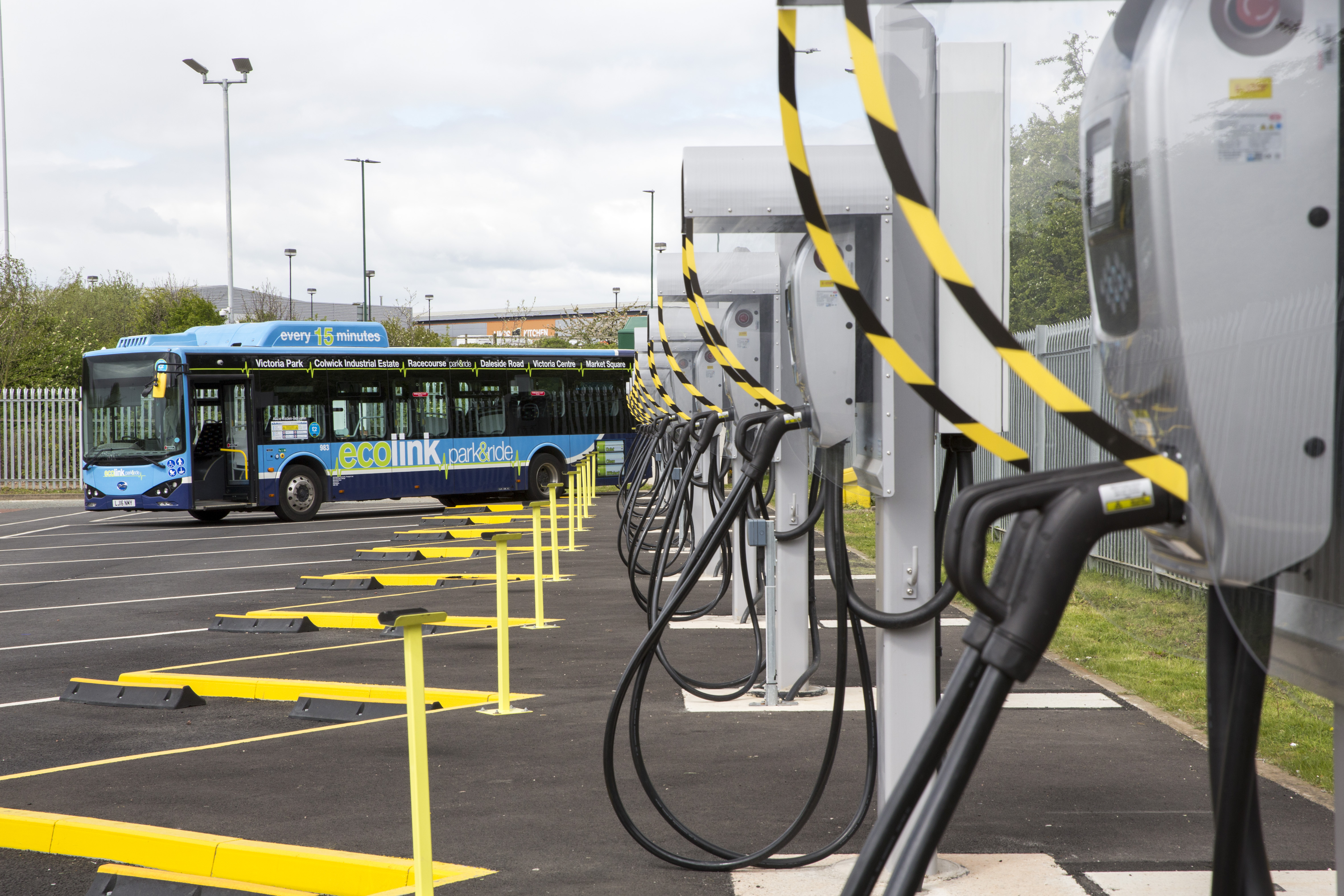
The project CleanMobilEnergy will integrate various renewable energy sources, storage devices, electric vehicles and optimisation of energy consumption through one unique smart energy management system. The development of this intelligent Energy Management System (iEMS) will increase the economic value of renewable energy and significantly reduce CO2 emissions.
The iEMS will assure the smart integration through interoperability based on open standards for data flows and analysis tools.CleanMobilEnergy will make it possible for renewable energy sources to be used locally, so electric vehicles can be charged with 100 % renewable energy offered at an optimum price. Electrical energy from the grid will only be required when prices are low or renewable energy sources are not available, the iEMS monitors and optimises the system 24hours a day, 7 days a week.
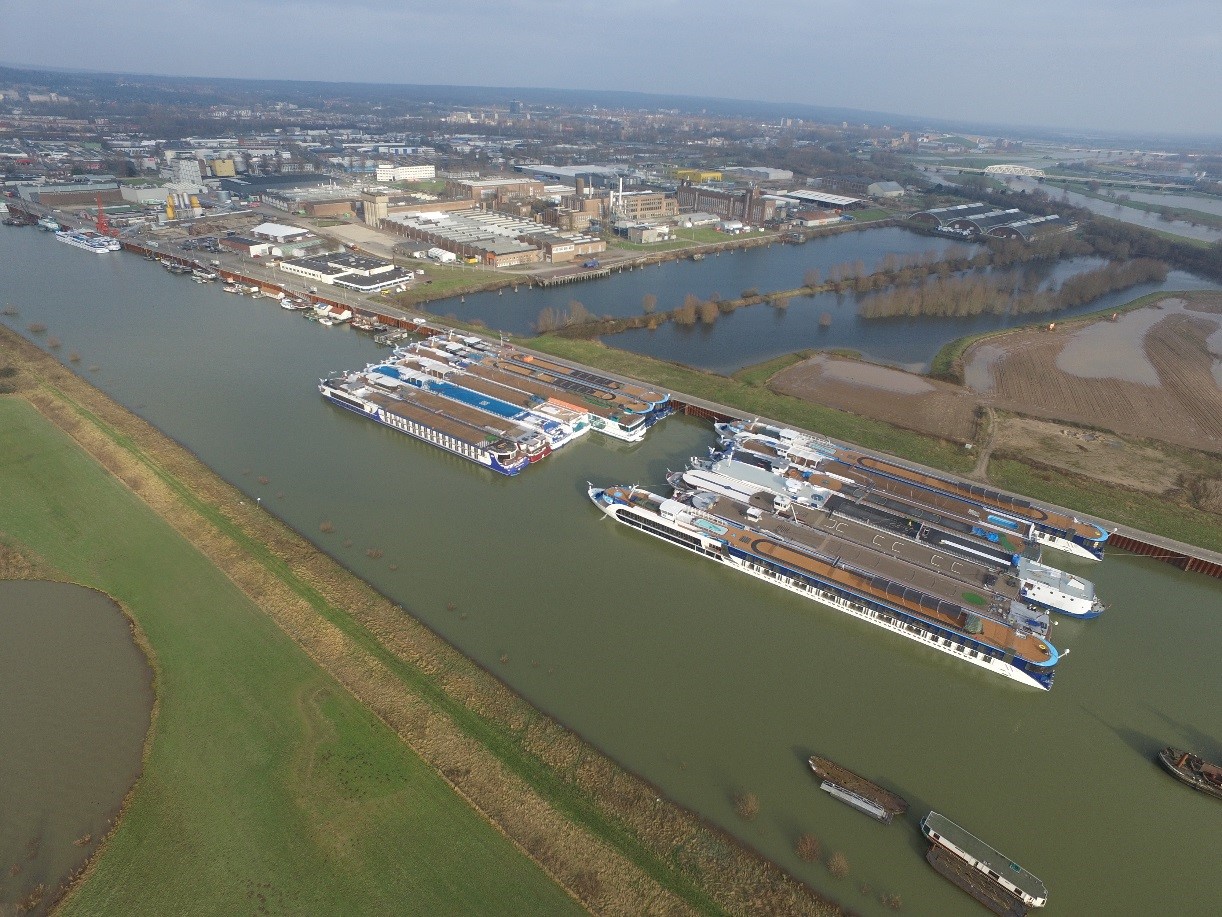
One generic transnational iEMS will be adapted to the 4 specific City Pilots, in Arnhem, London, Schwäbisch Gmünd and Nottingham. These pilots range from small towns to large cities. The 4 City pilots cover different types of renewable energy, storage and electric vehicles as well as different contexts and diverse city environments.
The City Pilots will utilise different state-of-the-art storage media in various environments, which are representative of North West Europe and are easily replicated in other cities across Europe. Specifically in London and Nottingham, for example, electric vehicles themselves will be used to power the buildings and depot by using innovative bi-directional chargers controlled by the integrated energy management system iEMS.
In Arnhem, on the other hand, renewable energy will be supplied to ships in the harbour adjacent to its industrial area. These pilots were chosen to represent a wide range of city sizes and environments, which are essential to developing a widely applicable system for future implementation across Europe.
Jonge talenten maken het verschil
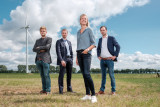
De jeugd heeft de toekomst en wil een bijdrage leveren aan een duurzamere maatschappij. Ze snappen dat een integrale aanpak en vergaande samenwerking tussen overheden en organisaties uit de energiesector, mobiliteit, gebouwde omgeving en industrie nodig is om de doelen uit het Klimaatakkoord te realiseren.
Binnen het Nationale Energietraineeship werkt op dit moment een groep jonge ambitieuze talenten iedere vrijdag samen aan projecten. Ze leren op deze manier over grenzen kijken, grenzen van organisaties, grenzen van rollen en functies, hun eigen grenzen. Samen vormen ze een netwerk over de gehele keten.
Hier vind u een overzicht van de projecten waar ze mee bezig zijn. Wilt u een talentvolle trainee inzetten op uw eigen projecten? Kijk dan verder!
Local Inclusive Future Energy (LIFE) City platform

Amsterdam Zuidoost will build a large amount of new homes in the near future. This will will demand more capacity from the electricity network. With an increasing demand the energy network either needs investments to expand the capacity of the network, or we can explore smart solutions in the field of energy management.
LIFE City Platform
Together with the expected expansions of the network, smart management of energy at area level can help prepare Amsterdam Zuidoost for the future, without unnecessary investments in the current energy grid. The LIFE platform offers users the opportunity to make choices about energy exchange or storage based on economic motivation, sustainability or to support the energy grid. Futhermore, the project ensures that the energy that is generated in Amsterdam Zuidoost - and not immediately used - can be stored locally, such as in the Johan Cruijff ArenA battery.
'Ditgital twin'
An important part of the LIFE platform is the development of a “digital twin”. This digital twin is a digital representation of the ArenApoort area, in which the relevant buildings and energy infrastructure are simulated. All kinds of experiments and adjustments can then be carried out in this digital twin, such as adjustments to electricity prices and rates and the integration of more sustainable energy generation. This allows smart area-based energy to be exchanged after the optimal mix has been calculated using measurement data and artificial intelligence.
Want to know more about this electricity grid-friendly and community inclusive innovation to contribute to the energy transition? Visit our website>>
Energy Lab Zuidoost

Amsterdam Zuidoost aims to be energy neutral by 2040. To reach this goal, significant steps need to be taken. Not only do we need new technologies, there is also a need for smart ways to organize the transition, and for adaptations to our lifestyle. This requires cooperation among many different parties. Both from the government and residents, as well as from companies and researchers. Energy Lab Zuidoost brings these parties together.
Energy Lab Zuidoost
The Energy Lab Zuidoost is an initiative of the AMS Institute, the City of Amsterdam and the Urban Energy Institute of TU Delft. By experimenting together in different ‘Living Labs’, they develop and test new innovations in a real-life environment. This helps understand what works and how to scale and implement these innovations in Amsterdam Zuidoost and other metropolitan environments.
The Energy Lab Zuidoost ensures the exchange of knowledge between different projects, organizations and disciplines. It connects scientific expertise to the urban challenges in Zuidoost and brings together academics from various disciplines. The ambition is to share the knowledge, so the innovations can be applied throughout Amsterdam and beyond.
Energy Lab Zuidoost focuses on three main topics around which they develop pilots and experiments:
- The sustainable renovation of homes
- Low temperature heat networks
- Local smart energy systems
For more info see the full animation about Enegry Lab Zuidoost (Dutch with English subtitles) on the AMS website >>
52 weken duurzaam, we gaan het gewoon doen.
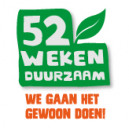
52wekenduurzaam nodigt je uit om je eigen leven stap voor stap duurzamer te maken. Een jaar lang iedere week een kleine verrassende en duurzame stap. Om te zien of het bij je past. Word je er gelukkig van, dan hou je het vol. Zo niet, dan skip je het. Wij onderzoeken wat er wel kan. Uitdagend, leuk, leerzaam en gratis. Loop je een stukje met ons mee?
Wij denken dat we met elkaar op een gemakkelijke manier veel duurzamer kunnen worden. Door elkaar te inspireren en uit te dagen. Door leuke en verrassende dingen te onderzoeken. Om zo je eigen versie van een duurzame leefstijl te ontwikkelen. We streven naar 5000 deelnemers in 2021. Hoe meer mensen meedoen, hoe beter. Voor onze Totale Impact Score, maar ook voor jezelf, want samen is veel leuker dan alleen. Dus geweldig als je nu al je gezin, je buren, vrienden en collega’s inspireert om ook mee te doen.
Wicked Problems
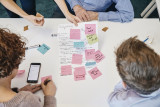
Te wicked? Niet voor ons.
Wij werken allemaal aan urgente, complexe, maatschappelijke uitdagingen. Issues die schier onoplosbaar lijken, van dilemma’s en paradoxen omgeven, nog niet duidelijk hoe het moet. Wel is duidelijk dát het moet, dat we elkaar nodig
hebben en dat we er NU aan moeten beginnen. Om met de woorden van Jan Rotmans te spreken; we leven niet in een tijdperk van verandering maar in een verandering van tijdperk. En hier hoort een nieuwe gereedschapskist bij.
En of je nou aan energietransitie werkt, andere mobiliteitssystemen, creëren van waterstofhubs, peer to peer autodeelsystemen, het maakt niet uit, we zien dat al deze opgaven op enig moment tegen gelijksoortige barrières aanlopen. Op samenwerking, financiering, privacy, onvoldoende aansluiting op de maatschappij, om maar een paar voorbeelden te noemen.
Unieke samenwerking
Als Amsterdam Smart City netwerk willen en kunnen we deze opgaven niet laten liggen. Door het bundelen van onze kennis en expertise kunnen we als netwerk iets unieks bieden en de wil en durf tonen om deze barrières te doorbreken. De betrokken partners die dit uitdenken en begeleiden zijn RHDHV, Kennisland, Drift, NEMO, Arcadis, Alliander, HvA en Metabolic. Zij bundelen hun expertise en ervaring om de echte vragen boven tafel te krijgen, tot nieuwe manieren van samenwerken te komen en barrières te doorbreken. We richten ons met name op de start van de samenwerking. Gezamenlijk ontwikkelen we een ‘wicked problem aanpak’. Op een nieuwe manier, lerend door te doen, exploratief.
Waar moet je aan denken?
Wat is eigenlijk het echte probleem? Wiens probleem is dit? Hoe kijken anderen er tegenaan? Welke andere partijen lijken nodig? Hoe vind je ze? Hoe ga je om met eigenaarschap en botsende frames? Hoe zorg je dat je al in
een vroeg stadium de maatschappij (bewoners, ondernemers, werknemers, etc) betrekt en hun ervaringen in het project trekt? Het wicked problem team zet nieuwe methoden in voor het beantwoorden van deze vragen. En het creëren van de benodigde commitment om het vraagstuk aan te pakken. Niets staat van te voren vast, want we passen ons aan aan wat we tegenkomen. Met elkaar ontwikkelen we een nieuwe aanpak om de barrières te doorbreken.
De energietransitie uitgelegd

De energietransitie is een van de belangrijkste maatschappelijke thema’s van dit moment en van de komende jaren. Maar wat ís de energietransitie? En wat zijn de specifieke doelen? Wat is het verschil tussen ‘energieneutraal’, ‘klimaatneutraal’ en ‘CO₂-neutraal’? Welke rol kan waterstof (niet) gaan spelen in de gebouwde omgeving van de toekomst? En hoe zitten ons huidige energieverbruik en energiesysteem in elkaar? Deze en andere vragen worden beantwoord in het boek ‘De energietransitie uitgelegd’. Ook komt aan de orde waar de uitdagingen liggen voor de energietransitie en hoe het energiesysteem er in 2050 ongeveer uit zal zien.
‘De energietransitie uitgelegd’ biedt alle basiskennis die nodig is om het nieuws omtrent de energietransitie kritisch te kunnen volgen en een gefundeerde mening te vormen in discussies over dit thema. Er is geen specifieke voorkennis nodig om het boek te kunnen lezen, maar het gaat op bepaalde onderwerpen wel diep in. Hierdoor is het boek interessant voor zowel energie-professionals als geïnteresseerde leken.
Nieuwsgierig geworden? Bestel het boek via uw boekhandel, bol.com of door het sturen van een email aan info@degroenewaterlelie.nl. Bij een afname van 10 of meer boeken ontvang je 5% korting (alleen bij bestellingen via email).
Het boek is gedrukt op boomvrij papier. Er zijn alleen bio-inkten gebruikt en er is gewerkt zonder schadelijke oplosmiddelen.
EC-Link Platform

You would like to connect with Urban Environmental Sustainability practitioners and researchers in China and exchange your approaches to green transport, clean energy, compact urban development, water and solid waste management, green buildings and municipal finance? Then sign up to the EC-Link platform! The platform links Eco Cities across Europe and China, offering inspiring examples from both sides of Eurasia and enabling direct contacts to the innovators. With the help of an integrated translation tool, posts can be translated into Chinese and English with just one click. Use of the platform is free of charge: http://eclink.org/bbs/#/?lang=en
A description of how the platform works can be downloaded here: http://eclink.org/ec_platform/upload/document/EC-Link_Users'%20Guide-EN.pdf
Globaliser Sustainable Solutions

As today's world presents us with a growing amount of global sustainability challenges, there is no going around the importance of building more sustainable solutions for the future. We are helping 8 sustainable solutions entrepreneurs with their internationalisation strategy and to help them achieve a global impact.
The Globaliser is a ten week programme for the international growth of Sustainable Solutions scale-ups.
You will build a solid internationalisation strategy with the use of DutchBasecamp’s tools, network and unique approach. The objective is to create a foundation, so you can channel your precious resources into unfamiliar territories with conviction.
What to expect?
Four sprints containing each a plenary session, specific homework and individual coaching by a seasoned entrepreneur.
After finishing you will have:
A validated international target market
A GTM strategy for that market
A solid international roadmap which will give you practical guidance on the next steps to take
enerGQmobility

Founded in 2014, enerGQmobility develops and markets low cost self-learning energy management systems to the full range of organizations from households to multinationals in all sectors of the market. Our aim is to contribute to “stop the global warming” within 5 years by licensing the technology to partners. It uses the low cost and energy saving technology to assess the performance and provide improvements in the areas of aviation, maritime, rail, and road transport.
The self-learning energy management systems of enerGQmobility make use of AI-techniques and visualize excess energy so that it can be reduced easily.
EMPOWER2.0

The project aims to demonstrate and accelerate the empowerment of citizens to become active energy citizens - and to create local energy communities via existing civil society structures - through development of new solutions (e.g. organisational) and adoption of new, emerging and existing solutions for energy ownership.
Smart Public Lighting in municipality of Renkum

The municipality of Renkum wants to switch to smart public lighting throughout the municipality and at the same time build an infrastructure for future Smart City applications, preferably with as few investments as possible. In response to this wish, Luminext (smart lighting), CityTec (service partner) and Primevest Capital Partners (financing) started a partnership to make this project possible.
Kevin Groen, project leader for the municipality of Renkum: “We have been busy in recent years for the tender for new public lighting. We are in need of replacement; our area is outdated and some lampposts are about to fall over. So we cannot wait until the first lampposts are replaced. We are looking forward to a great collaboration in a unique tender form!”
More information:
Please contact Mirjam Endendijk, Manager Marketing & Communications Luminext: <a>mirjamendendijk@luminext.eu</a>
WarmBouwen-pilot in Amsterdam
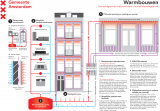
NL
WarmBouwen is een techniek die gebruik maakt van restwarmte bij het isoleren van woningen. De techniek zorgt ervoor dat de buitenschil van de woning op temperatuur blijft waardoor er vrijwel niet verwarmd of gekoeld hoeft te worden. De restwarmte wordt door dunne buisjes in combinatie met (duurzaam) isolatiemateriaal op de wand geplaatst. De techniek is makkelijk te plaatsen, het isolatiemateriaal is slechts enkele centimeters dik en daardoor makkelijk toe te passen in de bestaande woningen in Amsterdam (zie de infographic voor een duidelijke toelichting).
EN
Warmbouwen is a technique that makes uses of residual heat in the insulation of houses. The technique ensures that the outer shell of the house stays on temperature with the result that there is barely any heating or cooling needed. The residual heat goes through small tubes and is combined with an (sustainable) insulation material, this combination is then placed on the wall. The technique is easy to install, the insulation material combined with the tubes is just a few centimeters thick and so easy to apply in existing houses in Amsterdam.
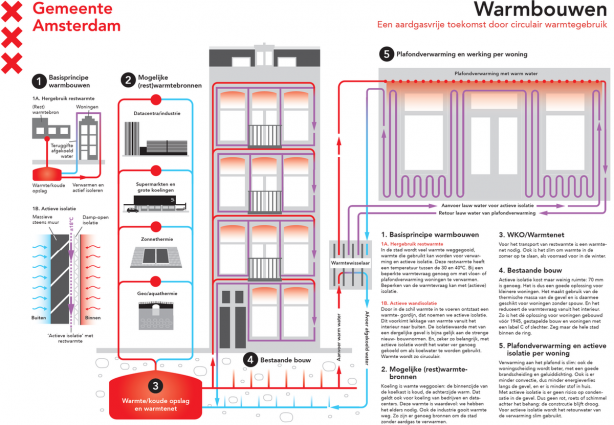
DeZONNET
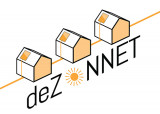
A residential area in Haarlem dating from the 1930s is planning to test a new design with locally-generated solar heat, heat pumps, and an aquifer thermal energy system (ATES) in the subsurface. If the trial succeeds, this approach could be a good way of making older homes more sustainable and disconnecting them from the gas mains. The design saves a lot more carbon than other gas-free solutions.
Delft University of Technology, Greenvis, Deltares and other parties are working together to investigate the technical and economic feasibility of the ‘DeZONNET’ concept. The idea consists of a low-temperature heat network fed by solar heat from solar panels that generate both electricity and heat. Some of this heat is used directly and some is stored on a seasonal basis in one or more ATES systems, reducing the requirement for external energy input to a minimum. The design delivers the heat required while using little electricity from outside sources and without other heat sources. This not only results in a gas-free solution, it also leads directly to maximum carbon savings.
Applicable in existing residential areas
A unique aspect of the project is that existing technologies are combined to produce an area-based energy concept that makes maximum use of locally produced energy. The temperature of the locally produced heat is raised by a heat pump in each home to heat the home and deliver hot tap water. Each individual system is linked to a low-temperature heat network and an ATES for heat exchange and the seasonal storage of heat. This combination makes it possible to apply the DeZONNET concept in new and existing residential areas.
The parties involved are examining technical and economic feasibility, and also looking at social considerations, including which residents want to participate and subject to which conditions. Deltares is looking at whether the heat network can circulate heat quickly enough from the homes to the area level and vice-versa. In other words, whether it is possible to regulate the system in a stable way. ‘We use our WANDA calculation model to simulate all the pipelines, the connections in the systems and the different temperatures at the home and area levels,’ says Sam van der Zwan, an expert in pipeline hydraulics at Deltares. ‘That allows us to play with all the components and see how we can regulate the system as well as possible.’ In addition, Deltares is producing a design manual for the DeZONNET concept so that it can also be used in other residential areas.
The results will be published at the end of this year. The project is being funded by the Netherlands Enterprise Agency (RVO) as part of the Energy Top Sector. It is part of the Haarlem Climate Agreement signed on 8 March 2019. The consortium for DeZONNET concept consists of: TU Delft faculty of Architecture, Deltares, DE Ramplaan Foundation and project SpaarGas, Greenvis, De WarmteTransitieMakers, ENGIE, Triple solar and Fortes Energy Systems.
Stay up to date
Get notified about new updates, opportunities or events that match your interests.

